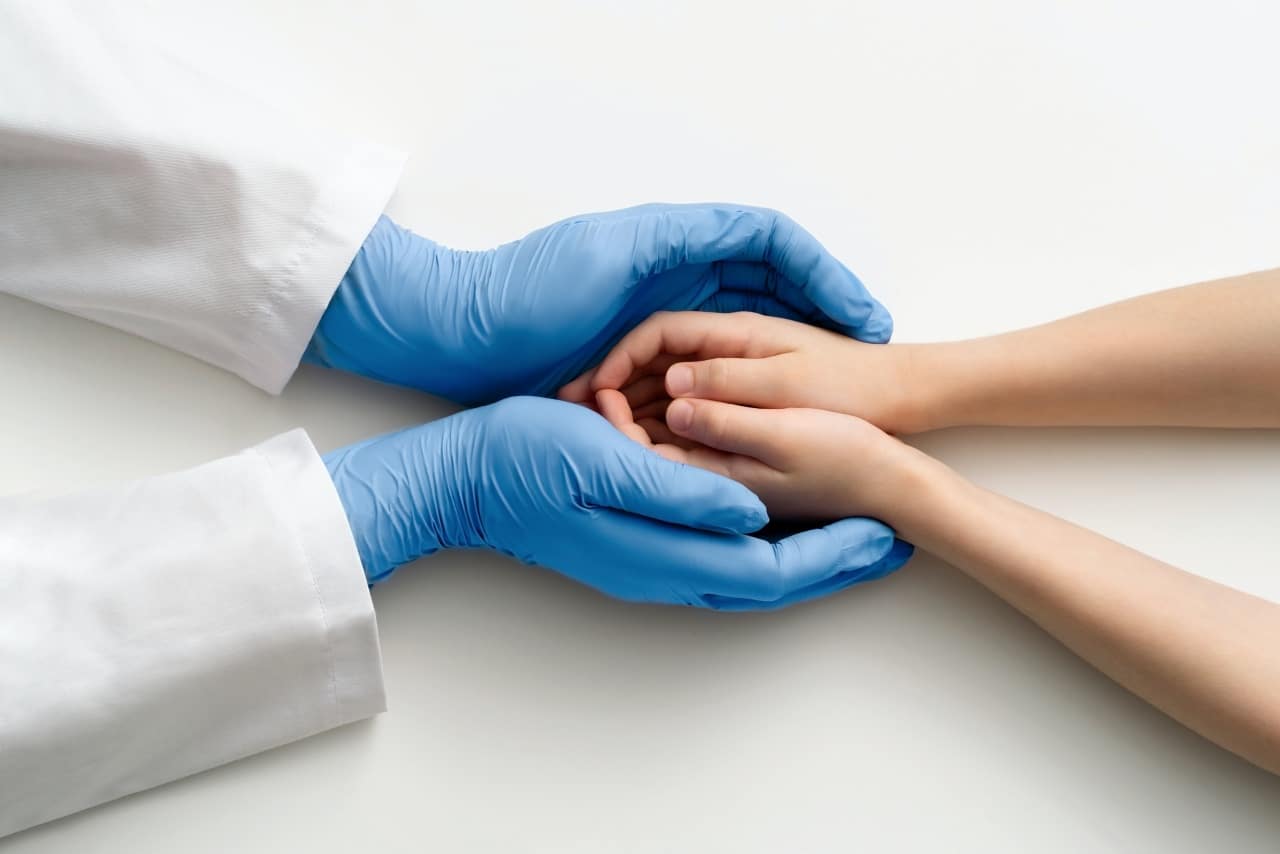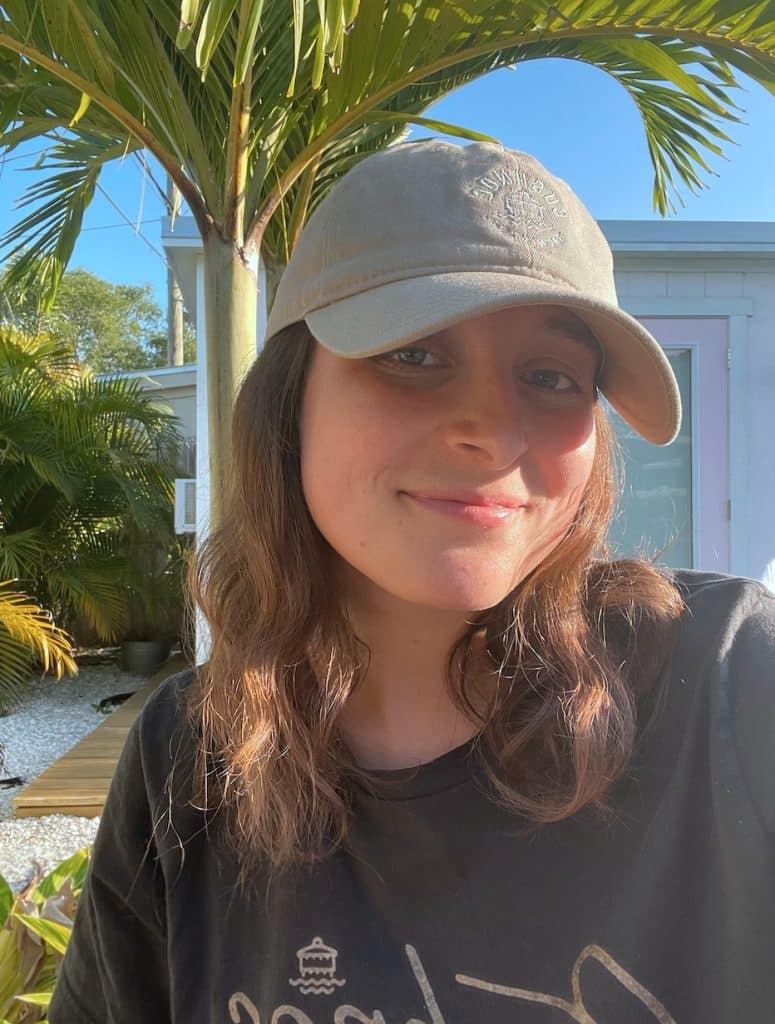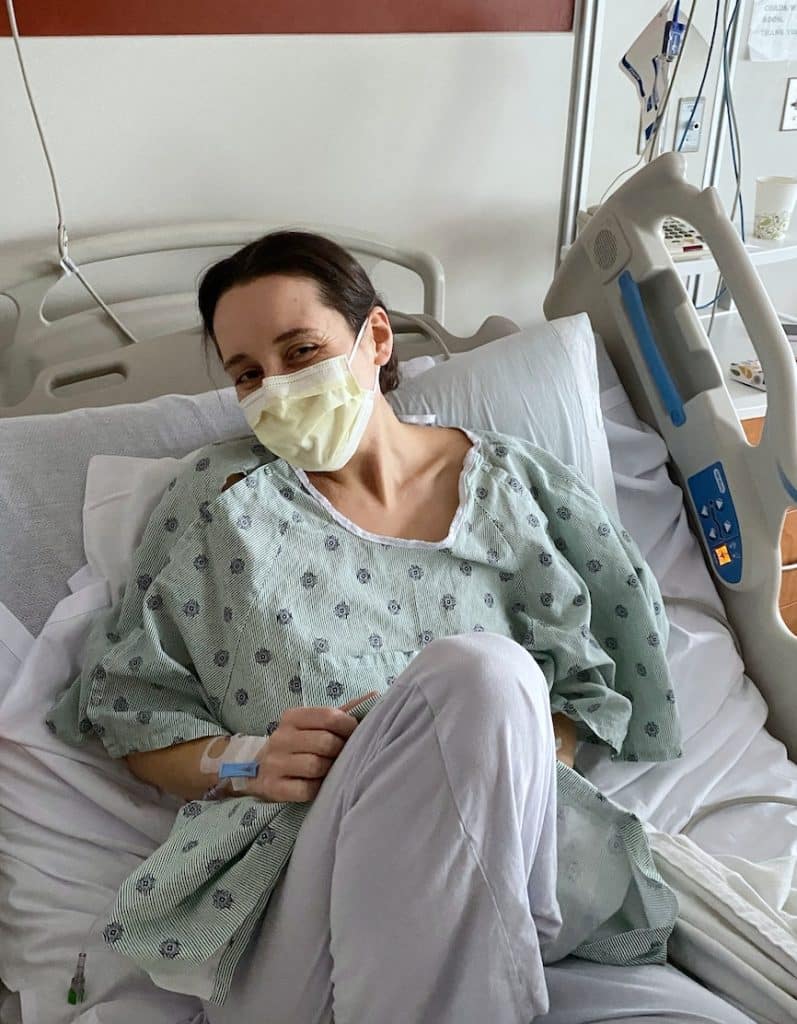Message in a Bottle
We say “hero” with such ease, and so often, but what could be bigger than for an ordinary person to save a life? One young woman’s search for a living donor hits close to home for the Yankee family.

In the United States, more than 17,500 patients are on the waiting list to receive a liver transplant, but for some, like Hayley DeLuca, it’s a living donor they’re searching for.
Photo Credit : ShutterstockWhen Hayley DeLuca was in high school in York, Maine, she once visited me here at the Yankee office, in New Hampshire. Her dad, Dean, is a longtime colleague of mine, and Hayley — who had always loved to write — was considering studying journalism in college. She arrived with lots of good questions, and our visit passed quickly. After high school, she studied economics at Emmanuel College in Boston. She spent a semester in Italy and graduated with a slew of dean’s list honors. Hayley soon moved with her boyfriend to Chicago, to work at a startup that made educational software to help high school students prepare for college. Her life held all the promise that a young person should know. And then, as her family wrote, life took a turn.

Photo Credit : Courtesy of the DeLuca family
When she was 15, Hayley presented with liver dysfunction, but Boston Children’s Hospital was unable to pinpoint an accurate disease diagnosis. In the ensuing 10 years, Hayley’s liver disease was dormant and remained without a diagnosis. However, in the summer of 2022, her disease made an unexpected reappearance, and her doctors were finally able to diagnose Hayley with primary sclerosing cholangitis. PSC is a very rare autoimmune liver disease that attacks the bile ducts inside and outside of the liver. There is no known cause and no effective treatment for PSC, nor is there a cure.
In the past year, her quality of life has dramatically decreased. She has had several hospitalizations, had stents placed in some of her damaged bile ducts, experienced bouts of pancreatitis, and endured monthly attacks of cholangitis (bile duct infections). Hayley’s doctors at both the University of Chicago and Massachusetts General Hospital have determined that a liver transplant is necessary.
It is essential that Hayley receives a transplant from a living donor. This necessity is due to the scoring system for organs called MELD (Model for End-stage Liver Disease). Although patients with PSC become extremely sick and in urgent need of a transplant, the MELD score is not designed for rare liver diseases, and individuals rarely have a MELD score high enough for a deceased donor transplant. While waiting for a transplant, people with PSC are at a high risk of developing bile duct cancer. Despite this concerning possible disease development, patients with PSC still make up only 5% of all liver transplants in the United States, as it remains so challenging, if not ultimately impossible to be a priority patient on the deceased donor list. Crucially, a living donor allows Hayley and the transplant team to schedule the transplant before she is too ill and her body is too weak.
After I read this plea from Hayley’s family, I called her in Chicago. She had recently flown to see her parents in Maine but had been ill the whole week — this, after coming off an “amazing” six months of relatively good days. “I never know when it’s going to happen,” she told me.
She was doing her best to keep working from her apartment. She still held on to the optimism and hope of youth. “I think it’s harder for the people around me,” she said. “I try to stay as active as I can. I exercise daily. I do my best to stay outside.”
And, she added, I’m the most grateful I’ve ever been in my life.”
Finding a living donor through an article like this is a bit like writing a message, sealing it in a bottle, and flinging it into the sea, hoping one day someone will look down into the water, or along the edge of a beach, and reach down. But sometimes it happens.
One of the best writing students I ever had was a young man named Justin. This past December, he donated a kidney so that a child he had never met could live. We say “hero” with such ease, and so often, that we may forget what a true hero can do. That it is possible for an ordinary person to save a life.

Photo Credit : Courtesy of the DeLuca family
The liver is the only organ that can rejuvenate to full size and function. When someone decides to see whether they might qualify as a donor, the understanding is there will need to be tests and evaluations. There needs to be a match. In Hayley’s case:
– Blood type A or O
– Close in physical size (she is 5 feet, 6 inches). The closer the donor is to her height, better the chances that the liver size will be a good match.
– Healthy with no pre-existing conditions
– Between the ages of 18 and 55
If there is a match, the donor will give 70% of their healthy liver to Hayley, but remember: The liver is the only organ that can rejuvenate itself. Also, all healthcare costs will be covered by Hayley’s family.
Hayley continues to write me. After our call, she sent me a poem she wrote this past winter, titled “Bananas.”
How do I wish I could share with people my struggle?
I don’t know, honestly.
It’s hard because so many days, most days I look okay.
This disease eats you from the inside.
How do I explain it?
You are a bright, yellow banana.
But when you peel back the banana it’s crawling with spiders.
With rot.
With disease.
I guess that’s how PSC is.
I’m rotting.
But I look okay most days.
I’m dropping weight.
But at least I’m skinny.
People tell me I look good. Healthy.
That’s what they would say to the bright yellow banana.
You look good.
ADDITIONAL INFORMATION:
If you’d like to be a liver donor candidate for Hayley DeLuca and live in New England, call Massachusetts General Hospital at 617-643-5202 or fill out Mass General’s Living Donor Form. When filling out the form, select LivingLiverDonor and specify Hayley DeLuca. Next, Mass General’s living donor nurse coordinator will contact you to describe the process, gather additional information about your medical history, and obtain consent for evaluation. Know that by calling or filling out this form you arenot committing to be a donor. Visit Mass General’s website for more in-depth information about the process. Any questions can be directed to Mass General at mghlivingliverdonors@partners.org or 617-643-5202; all conversations are confidential.
If you live in the Midwest, where Hayley resides, you can call University of Chicago Medicine at 773-702-0620 or fill out the UChicago Medicine Living Donor Form. After that, a member of the living donor team will contact you. Know that by calling or filling out this form you are not committing to be a donor. Visit UChicago Medicine’s website for more in-depth information about the process. All conversations are confidential.
Mel Allen
Mel Allen is the fifth editor of Yankee Magazine since its beginning in 1935. His first byline in Yankee appeared in 1977 and he joined the staff in 1979 as a senior editor. Eventually he became executive editor and in the summer of 2006 became editor. During his career he has edited and written for every section of the magazine, including home, food, and travel, while his pursuit of long form story telling has always been vital to his mission as well. He has raced a sled dog team, crawled into the dens of black bears, fished with the legendary Ted Williams, profiled astronaut Alan Shephard, and stood beneath a battleship before it was launched. He also once helped author Stephen King round up his pigs for market, but that story is for another day. Mel taught fourth grade in Maine for three years and believes that his education as a writer began when he had to hold the attention of 29 children through months of Maine winters. He learned you had to grab their attention and hold it. After 12 years teaching magazine writing at the University of Massachusetts-Amherst, he now teaches in the MFA creative nonfiction program at Bay Path University in Longmeadow, Massachusetts. Like all editors, his greatest joy is finding new talent and bringing their work to light.
More by Mel Allen

